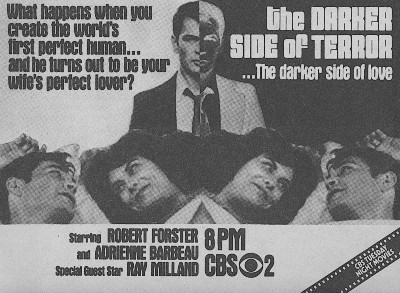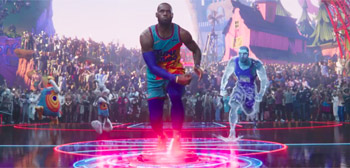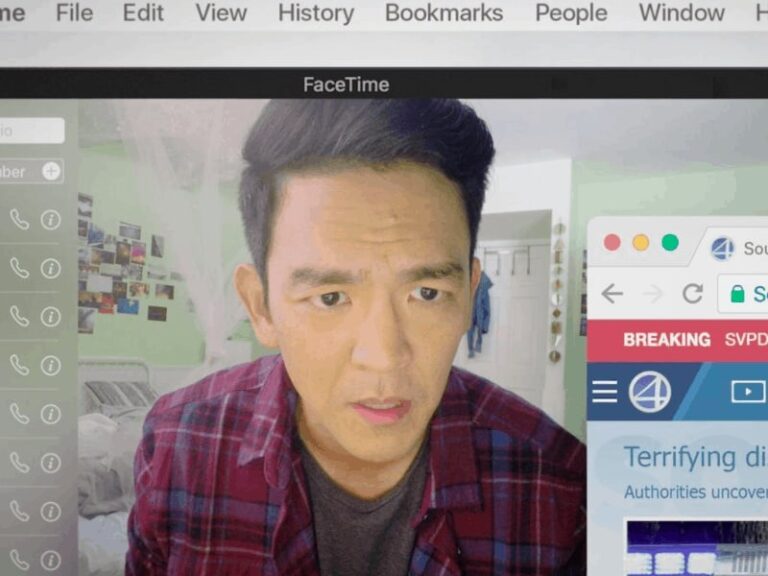Interview with Chyna Robinson, Director of NO ORDINARY LOVE
Last year, Chyna Robinson directed No Ordinary Love, an immersive thriller about two women in abusive marriages. It pivots its audience between two very different, but very real, experiences of intimate partner violence. We follow its protagonists as they realize they are in danger, and we are held in visceral suspense as they consider escape. No Ordinary Love confronts the ugly realities of many abusive relationships, as survivors’ friends and family as well as supposedly helpful institutions become complicit with abuse.
No Ordinary Love won awards at several film festivals and was one of 21 American feature films shown at the 24th Annual American Black Film Festival. Robinson, fresh out of her festival circuit, is just as insightful in person as in her screenwriting and directing.
Frances Maurer for Film Inquiry: Thank you so much for speaking with me on behalf of Film Inquiry. It’s great to meet you! Congratulations on your award wins and nominations for No Ordinary Love.
Chyna Robinson: Thank you!
Let’s talk briefly about the themes, first: what should somebody know going into the film?
Chyna Robinson: Well, No Ordinary Love is the story of two women who find that their once ideal marriages have taken a dangerous turn. Both of the women’s husbands have a dirty little secret: they present their lives one way to the world that’s extremely different from their lives behind closed doors, so even the people they’re closest to don’t suspect what’s going on. Some of the themes are romance and hope, as well as lies, secrets, and fear, inside of this movie that we have deemed a cerebral thriller. We take a really realistic look inside the manipulative, life-threatening relationships that are a part of intimate partner violence.
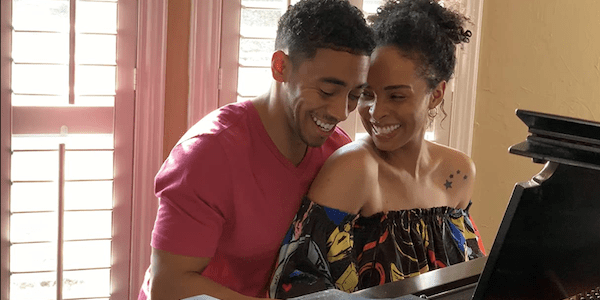
That’s pretty dark. How was it dealing with such dark, complex topics for your first narrative film? How was your process there?
Chyna Robinson: Well there are dark issues and abuse, but again, that’s the difference between doing a documentary and a fictional film. So I made it palatable by balancing those issues with scenes like the mother and daughter singing off-key in the kitchen, moments of heavy laughter and dancing, and romance by candlelight, so there isn’t relentless physical abuse throughout the movie. That’s kind of how I balanced it so it wasn’t just a dark movie. It was a very realistic look inside a relationship, so there are good moments and not-so-great moments.
Yeah, it definitely showed the whole spectrum of these toxic relationships. Going off of what you said, how do you see the differences between this feature film and maybe a documentary depicting abuse or toxic relationships? Do you think they would be differently received, or have different social impacts?
Chyna Robinson: They definitely would be received differently. Documentaries are a beautiful way to share a story with audiences. I think they can be really highly effective. But I also think that a documentary on abuse can be a lot harder to stomach than a fictional film about the same topic, just because you’re looking into the life of someone who is going through it or went through it, and you’re not really able to escape into that fictional world. I was able to take creative license and write a fictional story with fictional characters, and make it entertaining for people who aren’t even interested in social issues, specifically abuse, but also make it authentic for those that are. So in the end, the film has proven to be really enlightening for audiences of all kinds. We’ve gotten really positive feedback from filmgoers and survivors of abuse, and advocates for DV [domestic violence] awareness as well.
Did you feel pulled to create such a socially meaningful piece of work, or was it overwhelming at times?
Chyna Robinson: You know what, I have to say it wasn’t overwhelming at all while filming. The research process and writing was a lot harder. I spent two months researching intimate partner violence, speaking to people, sitting in with the prosecutor on court cases and things like that. But when I step on set, I become the director; the script has been written at that point. At that point it’s my responsibility to make sure that the cast and crew are okay emotionally, and that we’re able to do what we need to do to get the movie made. So it’s important to build relationships with the crew and the actors so that we trusted each other and were open with each other. And then for No Ordinary Love our EP [executive producer] was always on set, which is not usually the case, but she was a really huge support system for me.
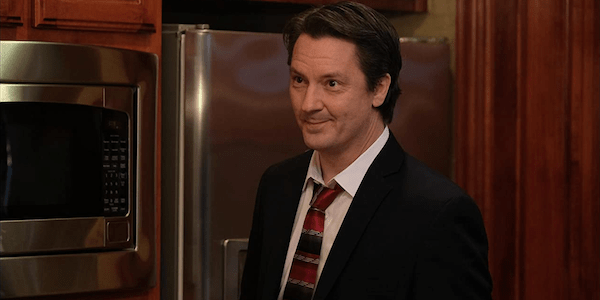
And speaking of your cast, your cast and crew I’ve heard was quite diverse and woman-led, is that correct?
Chyna Robinson: Yeah! Absolutely, they absolutely were. As a Black female filmmaker, it’s important that I’m able to tell my stories through my own unique lens. I definitely want to write about Black people and Black women and Black families, but it just doesn’t stop there. I love telling universal stories, and the world’s just not one thing or another. No Ordinary Love is a female-centered story, written, produced, directed, edited by women, and shown through the perspective of our leading ladies. It’s important to me that women are given the same opportunity as our counterparts, and having a diverse cast and crew is also as important. It’s really crazy to me that Black people and other people of color are still fighting for equal opportunities in the industry. But on our set, we had a beautiful mix of people in front of the camera and behind.
That’s wonderful. You mentioned in your research for the film going into court and doing a lot of hands-on research. How else did you involve the perspectives that helped you create such distinct experiences of intimate partner violence in this film?
Chyna Robinson: Well when I started researching, I was one of the people that thought of physicality when I thought of abuse. I thought it was just the hitting, and the kicking, and all of these things. But the more that I read, and the more that I spoke with experts and survivors of abuse, the more I realized that abuse has many, many forms. I wanted to incorporate as many kinds as I could into the film without making it seem unreal. I wanted to tell the story through the perspectives of our two leading ladies because too often, the stories of intimate partner violence are told from the male perspective with a male director. It was important to give the women a voice. So in the research, I spoke with 23 female survivors of abuse, and they not only told me their stories, they told me their fears, their hesitations about leaving. They told me about the love they had for their abusers before they even realized they were in abusive relationships. I didn’t use any part of their stories, but their bravery and openness definitely helped me write realistically.
That’s a really impressive amount of hands-on research.
Chyna Robinson: [Laughs] Yes. It was heavy, but it was absolutely worth it.
Do you think filmmakers have a responsibility to address social issues like this in their work?
Chyna Robinson: No! I don’t think that they do. I think that filmmakers do have the responsibility to be ethical in their work, but I certainly have written and will continue to write scripts that don’t necessarily address social issues. It may be a story to give you an escape, or a laugh. You know, like a tender love story with a cotton-candy ending. But everything doesn’t have to reflect whatever social issues are happening around us, because a lot of us carry that anyway from day to day. So we need our own escapism as well.
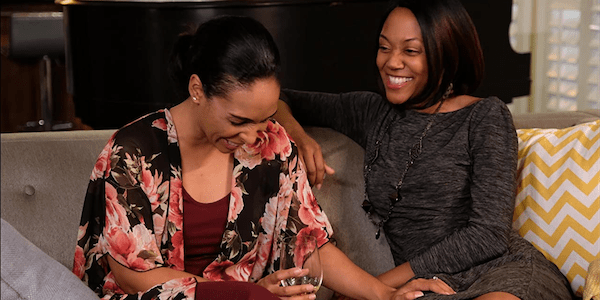
When you say ethical, do you mean in terms of production, of involving different perspectives? How would that apply to, say, a romance film, or an action film?
Chyna Robinson: When I say “ethical,” I just mean there is a lot of cultural appropriation inside of art. And everyone doesn’t agree, and that’s fine because again we have creative license and we’re creating fictional stories. But for me, there comes a point where you have to be really careful about telling the struggle of someone else because you can’t understand it and you haven’t experienced it in that way. There’s a quote, “Don’t dip your pen in someone else’s blood.” That’s pretty much what I refer to when I say ethical versus unethical.
Your film, I think, is a very important one. What message are you hoping No Ordinary Love will send to audiences?
Chyna Robinson: Well, we made the movie for everyone, for survivors, for people who just like a good suspenseful film. The message we’d love for viewers to leave with is to pay attention to your loved ones, check on the ones you haven’t heard from in a while, and take mental note of the red flags in the film. Reassess your own relationships if you need to, because abuse doesn’t always leave bruises.
Wow. Thank you so much for your insight, and congratulations again on your film festival circuit. Is there somewhere audiences can keep an eye out for the release of No Ordinary Love?
Chyna Robinson: We’re working on the distribution right now, but for now we have a couple of upcoming festivals. The next is the 20th annual Kansas International Film Festival, and that’s happening in November. We will continue to post updates on our social media, so on Facebook, Instagram, and Twitter. We post updates whatever happens, with distribution, film festivals, awards, behind the scenes, all of that can be found on our social media.
Film Inquiry thanks Chyna Robinson for her time.
No Ordinary Love screened at the 2020 American Black Film Festival and is next headed for the Kansas International Film Festival in November. Follow No Ordinary Love on Facebook, Instagram, and Twitter!
Does content like this matter to you?
Become a Member and support film journalism. Unlock access to all of Film Inquiry`s great articles. Join a community of like-minded readers who are passionate about cinema – get access to our private members Network, give back to independent filmmakers, and more.
Join now!
